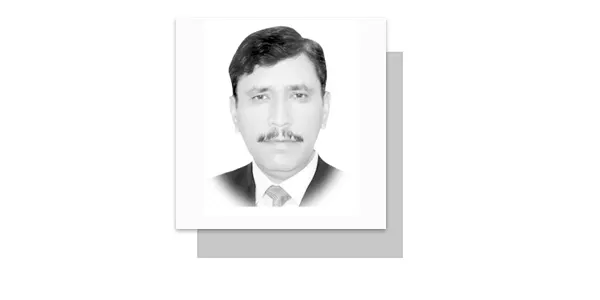THE relentless depreciation of the Pakistani rupee against the US dollar has set off alarms, underlining the dire need for an effective counter-strategy. The absence of a comprehensive plan has only exacerbated the situation, allowing the issue to fester. The outcome of this currency devaluation is a surge in inflation, stealthily operating as a tax that chips away at the purchasing power of the populace, leaving them financially vulnerable.
Amid the web of inflation’s repercussions, one distressing outcome is the amplification of hunger due to the escalating costs of vital commodities. This spike directly threatens the sustenance of ordinary citizens. Prices of staple foods like flour and rice have soared, with flour crossing Rs 150 per kg and rice reaching even greater heights. Basic essentials like dairy products and meat have similarly surged, placing an additional burden on already stretched household budgets. Moreover, the cost of imported items, such as pulses and cooking oil, subject to import taxes, complicate the situation further.
Inflation’s ripples extend across the economic spectrum, affecting various sectors and echoing into society. The surge in oil and electricity prices cascades into consumer goods and job availability. Industries dependent on these inputs struggle with elevated production costs, potentially leading to decreased job opportunities and heightened economic instability. These far-reaching implications intricately weave into the very fabric of the economy, influencing the overall well-being of the nation.
Central to the matter is the structural inequality ingrained in the fiscal policies. Fiscal gaps arise when government expenditure consistently surpasses revenue, often exacerbated by inefficiencies in resource allocation, unchecked public spending and a lack of progressive taxation. This growing disparity between outlays and income creates fiscal shortfalls, necessitating alternative funding sources. Within these gaps, the foundation for inflation inadvertently takes root.
The distribution of these fiscal gaps’ consequences is far from equitable. The influential sections of society, often affluent individuals and well-connected entities, are frequently positioned to benefit from the very resources being allocated to bridge the fiscal gap. These groups often wield substantial political influence, which grants them access to government contracts, subsidies and other forms of financial favouritism. These perks and privileges not only contribute to the widening wealth gap but also undermine the principles of fairness and equal opportunity.
One of the most glaring examples of this distortion can be found in the taxation landscape. While the elite enjoy these advantages, they are often strategically excluded from bearing their fair share of the tax burden. This divergence is manifested through a prevalence of regressive taxation systems that rely heavily on indirect taxes, such as consumption-based levies. These taxes, often disproportionately affecting lower-income groups, include sales taxes and excise duties on everyday essentials. The commoners, already grappling with limited financial resources, find themselves shouldering an excessive portion of the tax burden while the well-connected elites are spared.
Shifting focus to politics, Pakistan’s political landscape, originally intended to bridge the gap between citizens and the state, has evolved into a mechanism that bolsters the influence of powerful groups within decision-making. Rooted in colonial times, this pattern has endured and morphed overtime. While ostensibly democratic elections are held, they often appear symbolic rather than substantial. The exorbitant costs and structural biases inherent in the electoral system contribute to this façade. A concerning outcome of this system is the potential for a party with as little as 20% of the popular vote to attain power.
This distorted political framework curtails the dividends of democracy, confining them to a privileged minority. Often composed of affluent families, this exclusive group secures victory through financial dominance and established influence. Once in power, they exploit their control over decision-making to consolidate their advantages and positions, further intensifying power and resource disparities.
This distortion within the electoral mechanism not only undermines the essence of authentic democracy but also perpetuates an imbalance that detrimentally affects the broader populace. The voices of ordinary citizens are often overshadowed by the financial and social might of established political entities, hindering genuine representation of diverse perspectives within the political arena. This historical trajectory, originating in the colonial era, persists and is vulnerable to manipulation and concentration of influence.
Pakistan grapples with an interconnected triad of challenges: the insidious advance of inflation, the concerning prevalence of widespread hunger, and the distortion of democratic politics. Inflation’s aftermath feeds into hunger as basic necessities become unaffordable. Furthermore, the political landscape, originally designed as a democratic conduit, has been co-opted to empower the elite, who leverage resources to their advantage. Effectively addressing these challenges requires comprehensive strategies that encompass economic policies, equitable governance and political reform. Without concerted efforts, these issues threaten to undermine societal well-being and hinder overall progress.
To address these intertwined challenges effectively, a comprehensive approach is crucial. Rebalancing fiscal policies to bridge gaps, instituting progressive taxation, and enhancing transparency and accountability mechanisms can help alleviate the cycle of inequality. Moreover, rectifying the political system through reforms that enhance representation and minimize elite influence can pave the way for a more equitable society.










